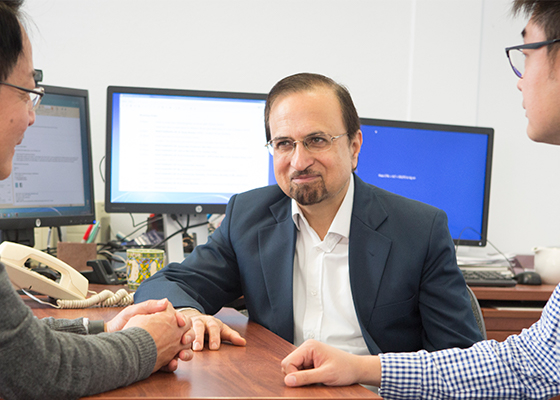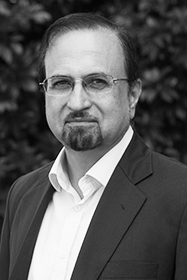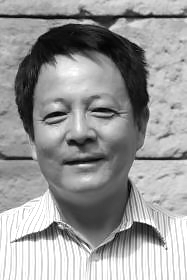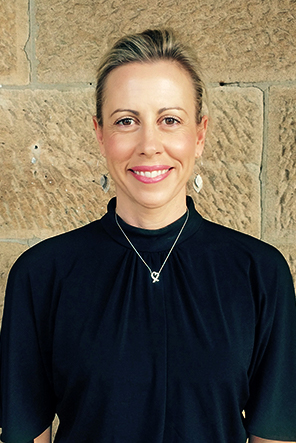HEIDI DOUGLASS | h.douglass@unsw.edu.au
A $649,205 grant from the National Health & Medical Research Council (NHMRC) has been awarded to the Centre for Healthy Brain Ageing (CHeBA) to support CHeBA’s Stroke and Cognition Consortium (STROKOG).
The Australian group, led by CHeBA Co-Director Professor Perminder Sachdev AM, initiated this consortium and continues to lead it, with active involvement of international partners.
“The successful grant will allow STROKOG the opportunity to address important issues relating to vascular cognitive disorders and help propel our international-first and ambitious efforts of this consortium,” said Professor Sachdev.
Stroke is the second most common cause of death and disability around the world. Since gains in public health and advances in medicine have helped reduced the stroke-related mortality, researchers are now paying attention to the effects of stroke on cognitive function. Vascular dementia is the second most common type of dementia; it is caused by impaired circulation of blood to the brain and is common following a stroke. It can often coexist with Alzheimer's disease, the most common form of dementia in the elderly. However, many aspects of cognitive decline in relation to stroke remain only partly understood. Most research studies examining cognition in stroke patients have been small, and this limits the ability to determine with confidence (or precision) the factors that lead to cognitive disorders and dementia after stroke.
STROKOG is a recently established international collaboration that brings together researchers from around the world, forming a collection of post-stroke studies with more than 16,000 participants from 18 countries and 30 studies.
Study Co-ordinator of STROKOG, Jessica Lo, explains that the consortium’s geographical spread and representation from high, low- and middle-income countries, involving different ethno-racial groups in diverse settings makes this consortium unique.
“By combining data from different studies and performing joint analyses on a ‘mega’-dataset, this grant will allow us to address some of the most important questions in relation to the characteristics and determinants of vascular cognitive disorders, which in turn could help improve the diagnosis and treatment of cognitive disorders after stroke,” said Ms Lo.
“In addition, STROKOG will create a forum for the exchange of ideas and discussion of data and will also enable inter-institutional visits and shared supervision of higher degree students,” she said.
STROKOG initially aims to examine:
- the cognitive profiles of individuals following stroke in diverse ethno-racial and geographical settings – which aspects of cognitive function are being affected following stroke and to what degree? Do we observe similar patterns in Australia, Europe and other parts of the world?
- the rates of cognitive decline in post-stroke individuals from diverse ethno-racial groups – how does cognitive function decline over time in stroke survivors and how does this compare with healthy individuals of similar age in a similar population? Is the rate of decline similar across different cognitive domains and across different ethno-racial groups?
- the risk and protective factors for post-stroke cognitive impairment and decline in diverse populations – risk factors for stroke are implied risk factors for vascular dementia; but do these risk factors for stroke lead to cognitive impairment independently of stroke? And since studies have reported racial/ethnic differences in risk factors, are the effects of the risk factors on cognition the same across diverse populations?
Vascular cognitive disorders represent a major health care burden on our society with projections to grow in the future.
Established in 2015, STROKOG is one of four international consortia led by CHeBA to investigate risk and protective factors for dementia incidence and healthy brain ageing world-wide. Support for STROKOG has largely been driven by CHeBA’s major philanthropic initiative, The Dementia Momentum with significant five year funding support from the Vincent Fairfax Family Foundation.
Richard Grellman AM, Chairman of IPH Limited and Spokesman for The Dementia Momentum initiative, which aims to drive societal change while generating philanthropic support for CHeBA’s big data research, congratulated its Co-Directors on this latest grant success.
“CHeBA’s focus on international collaboration continues to inspire significant promise for future outcomes in dementia research.” he said.
Having already led a number of international consortia, Professor Sachdev says CHeBA is in an outstanding position to make a difference to the worldwide understanding of dementia for improved outcomes in prevention, earlier diagnosis as well as earlier and more effective interventions.
Fellow CHeBA investigators include Dr John Crawford, Associate Professor Wei Wen and Dr Anbu Thalamuthu. Other investigators on the grant include UNSW Sydney’s Professor Louisa Jorm and Professor Velandai Srikanth, Monash University’s Dr Sandra Black and Sunnybrook Health Sciences Centre’s Professor Raj Kalaria.







